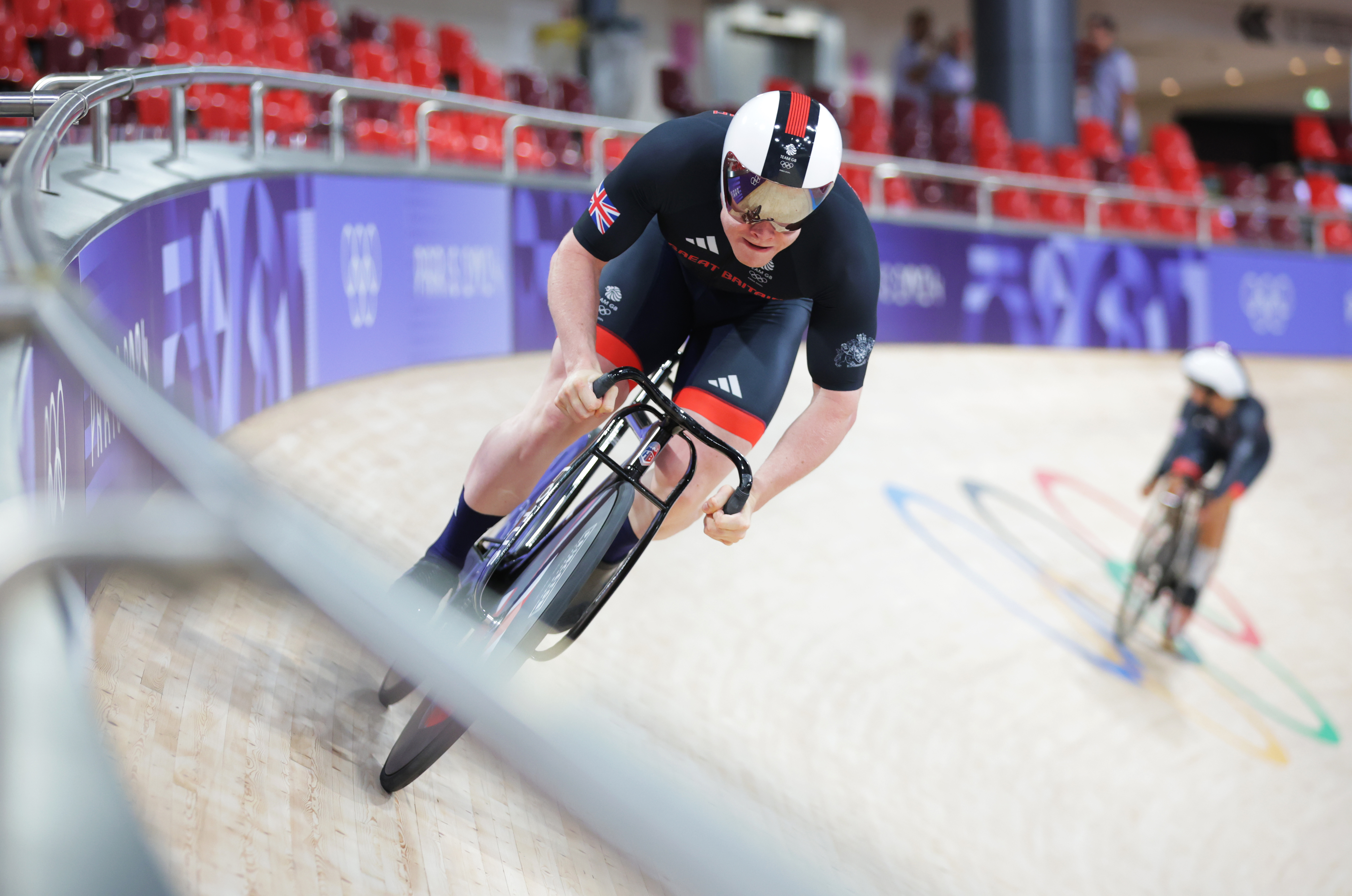
World records will fall. That is the feeling ahead of the track cycling events at the Paris Olympics, which begin today inside the Saint-Quentin-en-Yvelines velodrome.
The French national track is a unique one in the world of cycling. While it is the same standardised length at 250m, it is eight metres wide – a metre more than others – giving riders more momentum as they charge down the banking.
For sprinters in particular, this gives the perfect playground for record-hunting.
"From the top, it's really, really quick," said Team GB's Jack Carlin, a silver and bronze medallist in Tokyo. "It's just the way it's built. It's quite high, a metre higher, and that is enough to make a big difference to 200m [flying laps].
"Around the black [line], it's the same. The only thing you would look at is how the light blue parts – the Cote d’Azur – merge with the track. It's quite a wide track, so people like Emma [Finucane], who can ride pretty much under the black, pretty much every time, are going to benefit really well."
Katy Marchant, an Olympic bronze medallist, agreed with her teammate. "The track is wider, so the transitions are bigger," she said. "It's not the steepness, it's the amount of track you have. It goes on for a little bit longer, so you have essentially more."
To seed their efforts in qualifying, each sprinter will do a flying 200m time trial, starting from the top of the track. The current world records are 9.099 seconds for men and 10.154 seconds for women, both of which could fall by a few tenths of a second on the wide boards.
As it stands, only one world record exists on the track in Saint-Quentin-en-Yvelines, which was used for the World Championships in 2022. That year, fresh from his successful Hour Record attempt, Filippo Ganna beat the individual pursuit benchmark, becoming only the second person in history to clock below four minutes, with a time of 3:59.636.
The track, however, is not generally considered well suited for pursuiting, a discipline with no opportunity to bomb down the banking. Both the men's and women's team pursuit records were taken at the Tokyo Olympics, where atmospheric conditions were "incredibly fast", according to Team GB silver medallist Josie Knight.
"With the way the [women's] final went, the Germans ended up getting a bit of a draft. After that momentum, it was an even faster time [at 4:04.242]," she said. "I reckon it will be close, but I don't see the world record going [in Paris]. I think it will be around 4:06, 4:05, those sorts of times, to win the final."
Cycling Weekly spoke to a handful of coaches inside the Saint-Quentin-en-Yvelines velodrome earlier this week, and was told that the atmospheric conditions have been very favourable.
"The first day of training was some of the fastest conditions pretty much ever at a sea-level track," said Jonny Mitchell, a track sprint expert within the Belgian squad.
Stormy evenings in Paris, combined with warm, humid days, have caused an almost altitude-like effect inside the velodrome. "The air pressure is low," Mitchell explained, "which helps bring the air density down. Lower air density means the riders have to cut through less resistance from the air.
"If the temperature stays high, then we'll expect to see quite a few records fall," he added.
"I reckon the women's team sprint record will definitely fall, men’s team pursuit record will definitely fall, and I think the women's flying 200m record, which was set at altitude by Kelsey Mitchell, will also fall. I think we'll see the first ever 10.0 [seconds] for a woman."
The track cycling events at the Paris Olympics begin on 5 August, with the first medals on the line in the women's team sprint. The final events will take place on 11 August.







